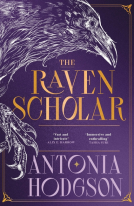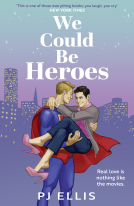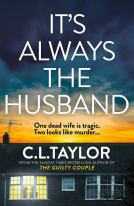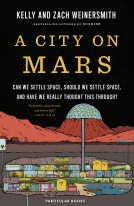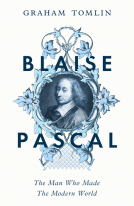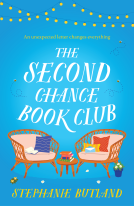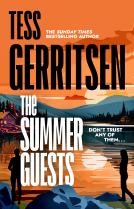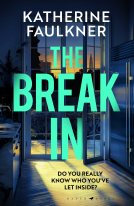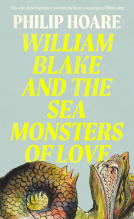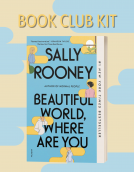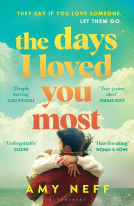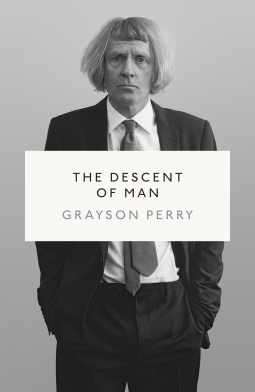
The Descent of Man
by Grayson Perry
This title was previously available on NetGalley and is now archived.
Send NetGalley books directly to your Kindle or Kindle app
1
To read on a Kindle or Kindle app, please add kindle@netgalley.com as an approved email address to receive files in your Amazon account. Click here for step-by-step instructions.
2
Also find your Kindle email address within your Amazon account, and enter it here.
Pub Date 27 Oct 2016 | Archive Date 5 Sep 2017
Penguin Books (UK) | Allen Lane
Description
Grayson Perry has been thinking about masculinity - what it is, how it operates, why little boys are thought to be made of slugs and snails - since he was a boy. Now, in this funny and necessary book, he turns round to look at men with a clear eye and ask, what would happen if we rethought what makes a man? Apart from giving up the coronary-inducing stress of always being 'right' and the vast new wardrobe options, a newly fitted masculinity could allow men to have better relationships - and that's happiness, right? Grayson's thoughts on everything from physical appearance to a brand new Manifesto for Men are shot through with the belief that, for everyone to benefit, upgrading masculinity has to be something men decide to do themselves. They have nothing to lose but their hang-ups.
A Note From the Publisher
Advance Praise
'With its non-macho slender girth and personal, engaging approach, [The Descent of Man] is a breeze of a read, and one that makes you see our male-manufactured world a little differently. And you can't really ask for more than that' - Matt Haig, Guardian
'A joy to read' - William Leith, Financial Times
Available Editions
| EDITION | Other Format |
| ISBN | 9780241236277 |
| PRICE | £16.99 (GBP) |
| PAGES | 160 |
Featured Reviews
 Glynis B, Reviewer
Glynis B, Reviewer
The author Grayson Perry has been in the news quite a lot recently and I can see why!!
Excellent book, with a really interesting concept.
Thought provoking and makes for a great read.
I couldn't put this book down.
 Patricia D, Reviewer
Patricia D, Reviewer
Thank you Netgalley, Grayson Perry and Penguin Random House UK for this digital ARC in exchange for a fair review.
This sort of book isn't usually my cup of tea however the email bringing it to my attention was very fortuitous as I'd only that day been having a discussion with one of the young hipster types where I work about a white man’s position in the media today. I'd made the point that men have had the tables turned on them in that you see images of half naked men all over the TV and books and it seemed OK for women to make overt comments about that but should a man do the same he was a misogynist. Equally men are often ridiculed in adverts (I'm talking about you pole dancing/hot pant wearing insurance men) and if they object (apparently the aforementioned advert was the most complained about last year and at the same time it was revealed more men had complained about ads than women...it doesn't take a genius to work that one out)He tried to do his hipster thing and say it was fine but as we chatted it became apparent it really wasn't fine and for all his organic loving, beard fiddling ideals he was just the same as the lads I grew up with in the 90's. He just didn't feel comfortable expressing it. So I was interested in a man’s point of view so grabbed this to see.
So I must be honest I didn't know much about Grayson Perry, I knew his name but not much else. As I read I learnt a bit, he reveals himself gradually throughout this without it becoming a vanity piece. All in all its an informative series of essays, very much based in his own, pretty spot on opinions. The illustrations are funny, as are some of his comments. At around 160 pages its not massively long but that’s a good thing – his writing is concise and to the point and at now point did I find myself scanning over repeated opinions or thinking he needed to get on with it.
This won't be every ones idea of a relaxing read but I enjoyed it and will be seeking more of his work.
 Kath M, Reviewer
Kath M, Reviewer
This is a short book which deals with modern masculinity. Perry has an amusing delivery and I enjoyed reading it. It’s full of little memorable quotations – ‘anger and violence are often the only emotions strongly reinforced in boys.’ Another is ‘Men need to learn to equip themselves for peace.’ Much of his book deals with his perception of the emotional illiteracy of boys and men, and he sees many of what he considers to be masculine traits in himself – the desire to win, the need to be right, for example.
It’s a fact that the single biggest cause of death for men under forty-five is suicide, so it seems obvious that not only for gender equality, a desirable goal in itself, but for the mental health of men, our society must tackle the idea of masculinity and allow our men to feel more than macho.
I enjoyed the book, though I felt it had a tendency to ramble. It went from really good ideas, which I found myself reading aloud, to occasional stating of the blindingly obvious. It was like someone chatting to you about his ideas rather than an organised setting-out of a hypothesis. Still a good read, however.
Grayson Perry is a bit like Marmite or Mansun; I quite like him, while getting the feeling that most other people who like him like him much more than I do. So too with this illustrated essay on masculinity, its travails and possible ways of allaying same. I suspect many will love it, as they did the Channel 4 shows on a similar theme which I never quite got around to watching; meanwhile, the usual suspects will be as outraged as ever when Perry points out the emperor is naked and not half so 'alpha' as imperial propaganda likes to pretend. Myself? I found it a largely unexceptionable restatement of some stuff I already knew. At times there'll be a very nicely put bit: just when I was getting narked at the idea of men's clothes as boringly plain, when in fact I struggle to find anything plain enough for me and not marred by some silly logo or detailing, Perry astutely pulls it around: "Men are into frippery as much as women, but they cloak it under spurious function". Elsewhere, things tip over into the self-flagellatory tone I find so offputting at the extremes of online left discourse; once or twice Perry lapses into blanket nastiness about straight white men, which is no less vile than blanket nastiness about any other [orientation] [race] [gender] combination.
Still, as he says himself early on, Perry's hope is that this might be some people's first book about this stuff, and if so, they could do a lot worse. Yes, it would be a good thing if a greater space of available emotional response opened up for men, as it already has for women (even if that project too is obviously far from complete). Yes, the world should no longer be set to a default setting of Default Men (though I dispute the example of air conditioning, set to a temperature comfortable for men rather than women: surely it's always better to set it such that people who are cold put more layers on, rather than people who are hot take them off, especially in an office environment where nudity might be taken the wrong way?). Yes, the constraints on male friendship (which must generally be couched in a hobby or similar excuse) leave far too many men lonely, sometimes unto suicide. His conclusions aren't always predictable; for someone so sceptical of machismo, he's oddly positive about the idea of national service. And while it's practically de rigeur these days for non-fiction to include glimpses at the writer's own life, Perry's example here is instructive; he's a cross-dressing artist and self-described sissy who nonetheless admits to anger management issues and a tendency to get incredibly competitive when cycling. And at the core of it all are some very useful concepts: I was already aware of the aforementioned Default Man, mistakenly believed to be the neutral setting for the world, but I'm quite taken with the Department of Masculinity. This is Perry's useful shorthand for the internal and external policing of acceptable male behaviour, which you can only ever hope to escape by at least being aware it exists. A handy concept, though also one to whose seductions he's not immune himself, at one stage proposing to write a new memo for the Department. Which felt like a bit of an Animal Farm moment; surely if Perry is entitled to dress as a little girl, which of course he is, then equally the Clarksons of this world are entitled to their leather jackets?
 Reviewer 260187
Reviewer 260187
To be honest I had to google Grayson Perry I knew the face but not the story. As soon as I saw images and read a bit about him I recognised exactly who he was.
Although I had no idea what to expect I very much enjoyed this little book, it deals with gender and masculinity issues that are somewhat current at present, certainly as a parent with both young children and teenagers. I got a lot out of this book and highly recommend it.
Brilliant book by a fascinating man. Grayson Perry gets to the heart of what makes men tick in this unique and insightful book. I wasn't sure what to expect when I started it, but it's written in a style that draws you in from the very first word. I'm so glad to have been given the opportunity to read this beautiful book. Highly recommended.
 Reviewer 13166
Reviewer 13166
Grayson Perry is an agreeable companion. His writing is chatty, personal, amusing. He begins by saying that most of the trouble in the world is caused ‘by the Y chromosome’. He posits a mythical chap called Default Man, who is white, middle aged, middle class and heterosexual. Default Man sees himself as so absolutely normal that he has successfully imposed his norms on society, making all other groups seem like odd minorities. You might think Perry is just saying, ‘men are awful’ but no. He argues that men would be happier and society improved if Default Man would just drop some of his sense of entitlement. There is another type called Old School Man. This poor bloke lives in the past, when muscled masculinity was necessary for working in heavy industry. This, Perry points out, is now redundant.
So what does Perry hope for? An end to the idea of a ‘norm’, so that everyone is accepted for who they are; for men to develop greater emotional intelligence; for greater gender equality. Don’t we all? This is the problem with the book. Entertaining and perceptive as it is, it will be read by people who already agree with him. I like my arguments: ‘this is what I think; here’s why I think it, reasons bang, bang, bang; that’s why I’m right.’
For me, the book is a little too rambling and has too many generalisations. Grayson Perry is himself a great role model for the different appearing normal. We must have come some way when a man can receive a CBE from the Queen or appear on HIGNFY wearing a dress without anyone turning a hair. I loved the cartoons decorating the book. They reminded me of Roz Chast.
 Sid N, Reviewer
Sid N, Reviewer
All right – hands up all those who are mad keen to read a book about attitudes to men and how they damage society? Well, quite. I braced myself slightly before starting this, but I actually found it an excellent and – amazingly – an enjoyable little book. It is readable, witty and very insightful.
Grayson Perry is a very acute observer of society. He is intelligent and thoughtful and his (to use his own word) "other" status as a transvestite gives him an excellent viewpoint. Here he talks about masculinity; how it is perceived by men and women and how those perceptions may shape the way in which men behave. He analyses attitudes very shrewdly and says some very interesting things about how those attitudes influence and often damage society, leaving both men and women worse off.
Perry is perhaps not saying anything remarkably new here, but he says it with a clarity, humour and an often self-deprecating honesty which makes it easy and enjoyable to read. This isn't and anti-men diatribe about how we're all dreadful people, but a recognition of how things are – including in his own behaviour both past and present – and how trying to change some ideas and expectations may make everyone rather happier.
I actually read a lot of this for enjoyment rather than as a book which I Ought To Read Because It Is Good For Me, which is rather what I expected, and I can recommend it very warmly.
I like Grayson Perry. He comes across as being observant, thoughtful and articulate. He has written a book that is interesting and thought provoking., a kind of extended essay which focuses on (and questions) four areas of masculinity: power, performance, violence and emotion. Much of the book runs almost parallel to his TV series, All Man
The Descent of Man looks at the nature of masculinity in the modern world and how it affects men's relationships with others and for some groups, how trying to live up to the ideals of masculinity can have a very detrimental effect on society (and themselves). I felt quite sad at times at some of the examples although there is also humour in the book.
Grayson Perry is engaging and entertaining and this is shown in the writing which is very good. This is not just an extended critical essay, he does make some suggestions as to how things might be changed so as to allow men to embrace new styles of behaviour that would allow them to develop/mature emotionally, and still be masculine.
He ends the book with a suggested Manifesto for Men.
Men's Rights
The right to vulnerable
The right to be weak
The right to be wrong
The right to be intuitive
The right not to know
The right to be uncertain
The right to be flexible
The right not to be ashamed of any of these.
 Nicki M, Reviewer
Nicki M, Reviewer
I'd heard of Grayson Perry but only knew he was someone in the Arts World. As a wife and mother of a teenage boy I was intrigued by the subject matter. However I nearly gave up when I found the first chapter repetitive and a bit of a rant fest!
I'm so glad I persevered as I thoroughly enjoyed the author's thoughts on masculinity and agree that this is a conversation that needs to happen more and more in the world today. I think this would be a great book to be discussed in classrooms, book groups, and self help groups. Maybe it could even be given away during World Book Night?
I will definitely be recommending it to my family and friends.
Thanks to NetGalley, Penguin Books UK and Grayson Perry for the advanced digital copy.
 Mandy J, Reviewer
Mandy J, Reviewer
In this entertaining, accessible, timely and very thought-provoking examination of masculinity, Grayson Perry explores exactly what being a man means in the 21st century. He looks at masculinity in its widest context and asks what sort of men would make the world a better place. There needs to be, he believes, a rethink of the now outdated version of manhood and asserts that masculinity isn’t something fixed but flexible and we can, if we want, replace the old paradigm with a new one, one more fitted for contemporary society. Talking about himself, men in general and about attitudes to masculinity, and speaking as always with the openness and honesty about his own life that we have come to expect and respect, this is a book to be pondered over and discussed, and is a valuable addition to current sociological discourse.
 Reviewer 115482
Reviewer 115482
Thought provoking, funny, educational and a must have for any men in your life. Every man, no everyone should read it.
 Janet B, Bookseller
Janet B, Bookseller
In her excellent 2014 book Unspeakable Things, Laurie Penny discussed the many ways in which patriarchy - and particularly the neo-liberal model of patriarchy - damages men. Chief amongst these is what Lynne Segal, in her book Slow Motion, called 'compulsory masculinity': the social and cultural pressures on men to conform to an extremely narrow and restrictive definition of masculinity. Grayson Perry's book is a natural successor to both Penny and Segal's work. He, too, believes that the current pressures of masculinity are damaging to men and argues that masculinity can and should be a broader and more diverse identity.
If this introduction makes The Descent Of Man sound impenetrably academic, I apologise, because actually the inverse is true: while scholars of gender studies will find much to enjoy, so will the casual reader. As a number of other reviewers have noted, I found myself entertained and gripped in a way I hadn't expected from a tome on masculinity. Perry is as witty and interesting a writer as he is an artist and film maker, and reading this I found myself highlighting phrases and paragraphs to share with my partner - something I very rarely, if ever, do.
 Kat D, Reviewer
Kat D, Reviewer
Grayson Perry's delightful examination of masculinity, both toxic and not. I was gifted this from NetGalley after 'wishing' for it, just a heads up. Thanks folks!
If you're someone who's interested in gender studies, as I am, this book is probably not going to tell you anything new. But Grayson Perry has a novel and interesting way of looking at evidence and studies, and his conclusions are very interesting. He takes apart certain socio-cultural 'truths' and questions why they are that way in a clear and straightforward voice. If you ever needed to convince someone of something they didn't want to believe I think he'd be the person for the job. I particularly appreciated his sometimes self-deprecating personal narratives. It can't be easy to openly discuss your issues with masculinity and childhood in such a frank and open way, but the narrative is all the stronger for it.
I truly hope this is not written off as some anti-man text. It is a wonderfully empathetic look at the so-called 'crisis of masculinity' and offers some real solutions to the problems. Because in fact there is a crisis of masculinity, it's just that we assign the blame in the wrong place. We point the finger at the enlightened woman, and accuse her of taking a man's place in the world. But really, the issues that disenfranchised boys and men are facing are at the hands of old male ideas. Grayson dissects these brilliantly, and offers up his own explorations of various isolated sub-cultures.
Having briefly studied sociology, and studied gender and cultural studies in depth, I was familiar with a lot of the theoretical framework. This isn't really a substitute for a textbook or a study, but rather an opinion piece that examines the findings and humanises them. If you're after the heavy theory read Judith Butler or Betty Friedan. But for the casual reader maybe this is the perfect gateway drug for self examination and introspection. Good stuff!
 Patricia B, Reviewer
Patricia B, Reviewer
Fabulous read if a little heavy at times, it's also very funny. I love that the writer had a teddy called Alan Measles! Laughed that he uses gents toilets even when wearing a dress, out of respect for women but also because there's rarely a queue for gents and that there are never enough ladies toilets. Maybe because most architects are men.
So many thought provoking ideas, I so enjoyed the book.
Had I not being reviewing the book for NetGalley I would have dipped in and out over a few nights s reading, maybe then it would have been an easier read. It's just so detailed and I concentrated a lot. I also learned much and am so glad to have read it.
It's a great book by an intelligent, sensitive writer. Excellent!
 Nigel M, Reviewer
Nigel M, Reviewer
A deeply thoughtful book about how we need to re-visit the role of the male. Grayson's argument is that the male species needs to accept a different status in life. One where he is neither superior nor required to fulfil the hunter/tough guy role. By descending to this role the male species shall find a much fuller life awaits them. Freedom to express the full depth of one's personality without being "categorized" by society is everyone's right and society needs to support men brave enough to do this.
 Jon A, Reviewer
Jon A, Reviewer
Received an ebook from NetGalley in exchange for an honest review.
I’m not sure I’d go so far as to nominate Grayson Perry for king and queen, as Caitlin Moran does, but I’d certainly nominate him for court jester. Court jesters are traditionally the ones who can get away with saying the unsayable in the presence of the powerful and that’s just what Perry does here.
Essentially this is Perry considering the traditionally masculine role in society with an artist’s eye; whilst the conclusions he reaches at the end may not be startling it’s how he reaches them that’s fascinating. What makes it so is Perry’s background; whilst his transvestitism and attachment to his teddy bear are well known his nearly joining the army and attachment to macho culture icons was less so. It makes for a fascinating mix; he’s able to discern the significance and iconic nature of clothing (though I suspect he goes a touch too far in the popularity of wearing jeans) and identify how the traditional masculine role has been eroded by social and technological progress. That’s best illustrated in the brief passage about the Durham Miners’ Gala, which he astutely observes as a kind of funeral of a way of life. While it’s astute he also identifies it as a social problem; where’s the outlet for rugged masculinity and its rutting stags nature? That’s a question he considers but can’t quite find an answer to; the ritualised combat of sport only goes so far.
Ultimately Perry’s conclusion is a fascinating one; the need for a feminism for men which doesn’t descend to the fatuous mentality of ‘men’s rights’. Men, he concludes, would be stronger for being flexible, vulnerable and uncertain rather than taking refuges in lists, processes and the need to be right. ‘Men’s Rights’ is hankering for a nostalgic past of heroes, of right and wrong being easy choices. Progress, he concludes, would be men embracing more traditionally feminist values just as feminism had absorbed and transmuted traditionally masculine ones. In a time which has often felt like a convulsion of traditional men striking back at social progress they don’t like Perry’s theories are convincing on the personal and social levels. Perhaps this book’s a step along the way to dealing with the issues modern masculinity can’t or won’t face and, in identifying them, dealing with them.
 Reviewer 247162
Reviewer 247162
A much needed analysis of masculinity and a must read for male and female feminists!
I've always found Grayson Perry to be an articulate and interesting man so was intrigued to read his thoughts on the subject of man and masculinity! And it has been a witty and insightful journey through a number of topics surrounding the role of men nowadays and how it has changed over the years, and how it continues to transform with the rise of feminism and even more topical with the role of gender playing less of a role in the world we live in now.
Really interesting to read his thoughts on how he thought him being a transvestite affected his perception of masculinity and how the influence of male figures in his life also changed his outlook. It also looks at the challenges men face in society nowadays with the changes in the roles they are expected to take
It explores the roles of toys, jobs, fashion, sports and hobbies, war and sex all influence men over the years, and now with the lack of male role models in a lot of young boys life through having no father at home or male teachers at primary schools, and how this forces youngsters to seek out guidance from celebrities they see on tv or on the sports fields.
His thoughts are also added too with the inclusion of some rather fun and topical cartoons which added a nice distraction to his writing and just added extra depth to the topics he was discussing.
Overall, a really interesting read which I thoroughly enjoyed
 Anne M, Reviewer
Anne M, Reviewer
I should start by saying I really like Grayson Perry and agree with Caitlin Moran that he should be running the country. His intelligent analysis of entrenched views is a joy to read - and at times amusing. In this book, he is looking at "masculinity" in its widest sense. Everything is challenged and the book goes deeper than his recent TV programme. Perry says "When I talk to a lot of men about a world without the gross bias of the patriarchy, I feel like I'm describing a world without gravity to them, so fundamental is gender bias to their vision of reality."
He is empathetic to the needs of all genders and sexes. "Having been unaware of the myriad ways they are privileged, they feel feminism is an attack on their core identity rather than a call for equality." In a world that elects a President who thinks grabbing women is acceptable and exploiting power is just locker room talk, there is a definite need for this kind of research and thought and Perry manages it beautifully.
Recommended for anyone interested in gender politics or modern power structures but also an ideal gift for the thoughtful men in your life who may benefit from knowing they are not alone in questioning the patriarchy.
I was given a copy of this book by Netgalley in return for an honest review.
 John G, Reviewer
John G, Reviewer
To call this wonderful book 'thought - provoking' is to risk seriously under-selling it. It's written with beautifully expressed passion from Grayson Perry's core, yet it remains considered and concise, articulate and very readable… a well-judged balance of head and heart.
This isn't a thesis then, it's the thoughts and feelings of a man whose essential being, his artistic 'doing' and his multi-faceted self-identity, have all been forged by his life experiences. Experiences which perhaps only a minority could directly identify with, but which put him in a credible and powerful position from which to lead a debate that has never been more needed.
If you're not yet familiar with Grayson Perry as an artist, may I suggest you look at his work 'The Huhne Vase' whilst you are reading this book. To me at least, The Descent of Man might almost have been written as an extended exhibition note for this magnificent piece.
I was fortunate enough to be sent an advance proof of the book by its publisher, Penguin Random House UK. Nonetheless, this is an honest, unbiased review of a book which deserves the widest possible readership.
 Jen G, Reviewer
Jen G, Reviewer
A fascinating insight exploring masculinity in the world today. Grayson Perry offers his own view on the damage that ideas of masculinity do to boys, men, and the rest of society. He offers, with intelligence and sensitivity, a vision of a different way that men can be. A thought provoking book that raises more questions than it answers.
 Steven P, Reviewer
Steven P, Reviewer
Many readers will be familiar with some of the book due to Perry's recent tv series about masculinity but that doesn't make this book superfluous.
Perry takes his time , expands on his points from the show and offers a fully rounded view on Men and their past and future. The work is funny , challenging and at times difficult , but as a writer Perry has the skills to take you with him. If you have never read any of his previous titles you will be pleasantly surprised by him as a writer but if you have read him then know how good he is.
I cannot think of any negative elements to the book , even the things I disagreed on , I understood his position and enjoyed his explanation.
 Gem L T, Reviewer
Gem L T, Reviewer
I recently watched Grayson Perry’s documentary series about masculinity and found some of his insights fascinating so I jumped at the chance to read and review this and I wasn’t disappointed.
Written in Grayson’s distinctive and deprecatingly humours voice, he examines what is and what is not man’s ‘nature’. Splitting off what boys are socialised to do to be accepted as men and how they actually do differ from women (spoiler alert – we’re less different than you might think!)
Then he asks what would happen if we rethought what makes a man? He argues for a new ‘Manifesto for Men’ but insists that, for everyone to benefit, upgrading masculinity has to be something men decide to do themselves. I hope men read this book and go for the upgrade – as a feminist I want men to have happy fulfilling lives and there are definitely hints in here that point that way. I came away with the impression that talking to each other was vital, but that this should be something that got built in to men’s life in a way they were comfortable with i.e. Whilst doing something else.
5 Bites!
 Bookseller 370546
Bookseller 370546
A fantastic insight into the ever shifting thoughts on gender fluidity, behavioural and social conditioning - as much feminist as it is about masculinity - a thoroughly entertaining and well-researched read.
 Sonia F, Reviewer
Sonia F, Reviewer
More of a long, well-researched opinion essay rather than a full book, but full of interesting thoughts, insights, stats, history and being Grayson Perry, fantastic off-the-wall illustrations.
Many who know me well will find it amusing that someone who refuses to label themself a feminist would read such a book, but I think that's because people often misunderstand my stance on it all (probably because I can't be arsed to explain it as I couldn't care less what others think of me).
Is a REALLY good book about all things gender - I loved it. Companion to his Channel 4 'All Man' series, which I haven't had a chance to watch yet, but am now even more determined to.
Thought-provoking and concerning - there is a much to do to change deeply buried expectations and perceptions, and are we prepared for what the end result may be?
Well written, an important read, timely, and of great interest.
It initially took me a while to get into Grayson Perry’s ‘Descent of Man’; I was prompted to finish reading with a sense of urgency and relevance by the US election results. On resuming, I finished the book in one sitting. I found myself well rewarded, being absorbed into the psychology, philosophy and history of men’s shifting position and uncertainty in the modern world, together with the insightful social commentary on current conditions, based on research, interviews, conversations and the personal experience and great self-awareness of the author.
There were many moments of recognition of the old-fashioned, angry, misogynist masculine role model for male leadership, which appears to have been voted for this week in the US; that Perry acknowledges Obama as an exemplar of a more open, compassionate, emotionally intelligent male leader is rather poignant, and it makes this book even more relevant in our times. I hope the author and publishers recognise this opportunity to spread the word further, as it is one of the most important messages - that there is not only space, but an urgent need for good men, fulfilled men and kind, tender, honest men of courage to help redress the balance in our fragile and vulnerable world.
Thanks to NetGalley, Penguin Books UK and Grayson Perry for the advance Kindle copy.
Following on from his television series on masculinity, Grayson Perry investigates how far society's ills can be laid at the feet of traditional man. Wars, crime, rape, vandalism, competitiveness and corporate bullying are all in the main male activities, he suggests in his new book The Descent of Man. How can men release the tension of these urges (which he acknowledges experiencing himself) without causing havoc?
In a world where aggressive hunting behaviour is no longer necessary for survival, what can men do to defuse their natural male urges? Looking at the role of men in today's society, he considers how Default Man (white, middle class, middle aged, grey-suited) can change and grow and find new avenues for self-realisation.
This is not an anti-man book but it does come out against fixed male gender roles. In the new more gentle model of manhood Perry promotes, men can benefit themselves and their health while benefiting the world. Many perceived norms, he suggests, are actually male behavioural traits but so deeply embedded are they in the mass consciousness, they have gone largely unchallenged. With the greater role of women and alternative males in business and politics these are now being eroded. Attempted adherence to these traditional male identities can cause stress, depression, illness and suicide in men who fit the Default Man mould and in those who do not.
Throughout this thought-provoking book Grayson Perry releases snippets of information about himself and his early life with a bullying stepfather. He acknowledges his own aggression and desire to get one over on other men. He sees this as partly a learned trait but also something in the male psyche that needs to be channelled. Though not going quite so far as to advocate military conscription, Perry does not dismiss the potential advantages inherent in some form of organised release of male aggression.
An easy yet compelling read, this book would make a great stocking filler for any man, especially those who may resist its message.
[This review will appear on Bookmuse.co.uk within the next couple of weeks. After a month or so it will be uploaded to Amazon and Goodreads.}
Conceptual artist, broadcaster and transvestite Grayson Perry is always entertaining, and this is an accessible, if uneven, read on masculine identity and power.
If you’ve read about or thought about gender you won’t find much that is new here, but you might find a way of talking about it to the people who say with genuine bewilderment, ‘We should just treat everyone the same’ or, ‘What about men’s rights?’ Perry’s humorous and well observed conception of the ‘Default Man’ explains why the dice are loaded against women (and some men).
He is also very strong, as you’d expect, when talking about the cultural aspects of male identity, about design and the way consumerism exploits and perpetuates gender differences for commercial gain (‘shrink it and pink it’). He draws on his own experiences of growing up with a violent stepfather, and embracing both his ‘masculine’ (mountain biking, militarism) and ‘feminine’ (fashion, intuition) sides.
The later chapters are less successful. The section on men and violence felt a little unfocused, as if he was outside his area of expertise (or had a deadline looming). He mixes in a slew of stats on crime rates, a series of snippets that felt like they’d been culled randomly from broadsheet comment pieces (the problem is no male role models in the home, the problem is bad role models in the home) and stories from All Man, his TV programme on masculinity.
There’s not much in the book about economics (apart from the section on consumerism and a nod to post-industrialism). There are a few references and quotes from academics but none for his assertions on nature versus nurture, which feel a bit simplistic.
The problem is that Perry is addressing masculinity at the individual level. If guys could just get in touch with their caring, intuitive side, they’d like themselves better, and women would like them better too. This takes no account of the men who gain from the exercise of power. Try telling Donald Trump and Vladimir Putin that they’d be happier and more fulfilled if they adopted a more respectful and empathetic attitude to women, and allowed themselves to feel vulnerable.
This book might be a useful introduction for some but I’m not sure it will reach the people who most need it. Perhaps when your drunk uncle is on his third port after Christmas dinner and starts grumbling about how you can’t even joke about groping a woman these days, you could hand him a copy. But I doubt that he’d read it.
 Iain C, Reviewer
Iain C, Reviewer
The Descent of Man is quite different from the number of Crime, Thriller, and Fantasy novels I have been mainly reading lately.
In this book, Perry explores the current state of masculinity and how various factors affect it.
I didn't really know what to expect when I first picked up the book. From the short description on the cover, I was initially worried that this was going to be a negative-toned analysis/dissection of 'modern man'.
I needn't have worried.
Within the first few pages, it became clear that this would be an entertaining, witty, and extremely honest perspective from the writer on his own experiences and his everyday observations of the people around him.
The book explores several stereotypes of typical 'masculinity' (Perry cites always being right, being afraid to show emotion etc) and throughout Perry suggests alternatives and asks whether the world would be a better place without some of these particular traits.
This was a really enjoyable book and I'd recommend it to others.
